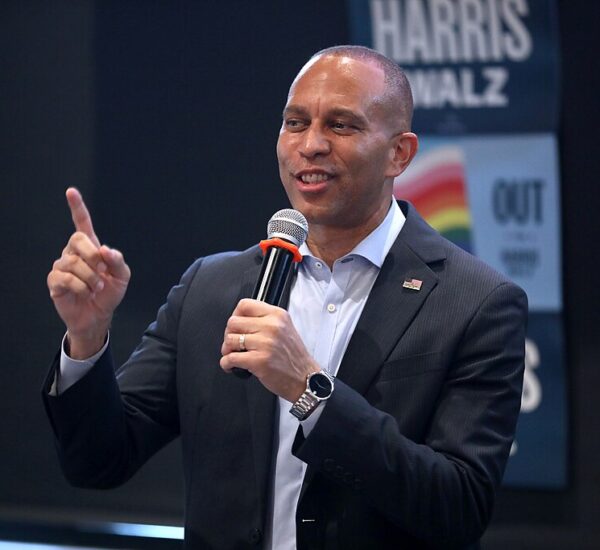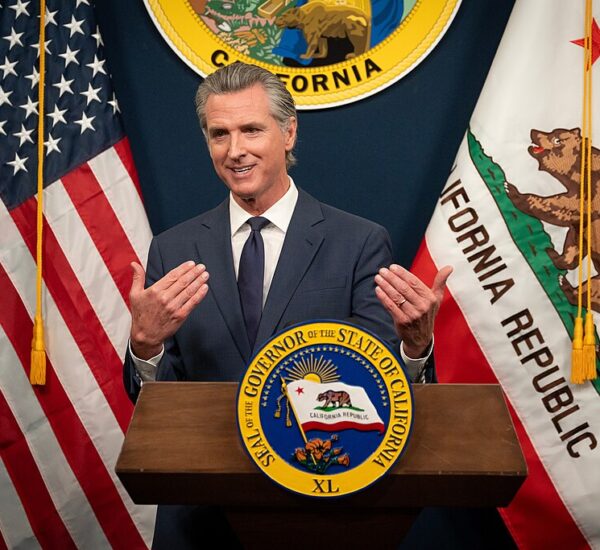This was unexpected.
Florida Republicans are raising serious concerns after the Trump administration signaled support for expanding offshore drilling in the Eastern Gulf of Mexico — a move that many in the Sunshine State worry could threaten tourism, real estate, and long-protected coastal waters.
Sen. Ashley Moody (R-Fla.) reacted immediately on X, calling the newly unveiled drilling maps “highly concerning” and vowing to engage directly with federal officials.
She stressed that Florida’s natural beauty, vibrant coastline, and tourism-driven economy must remain protected, especially for retirees, small businesses, and families who rely on clean beaches and strong property values.
DeSantis Team Pushes Back, Citing Trump’s 2020 Coastal Protections
Gov. Ron DeSantis’ office quickly reminded voters that President Trump previously blocked drilling near Florida during his first term, a policy that enjoyed overwhelming support from Florida Republicans.
A spokesperson urged the Interior Department to stick with the 2020 Trump memorandum, which protected Florida’s waters until 2032.
This marks a rare disagreement between Trump and Florida GOP leadership — a notable shift considering the former president made Florida his official home in 2019 and maintains a strong conservative base in the state.
Why This Matters: Tourism, Home Values, and Veterans
Florida’s coastline isn’t just scenery.
It represents:
- billions in tourism revenue
- retiree migration
- strong home values
- military training zones
- small businesses tied directly to beach activity
Any proposed offshore drilling near the Gulf instantly triggers fears of another environmental crisis. Many Floridians vividly remember the 2010 BP Deepwater Horizon disaster, which devastated Gulf tourism and cost Florida an estimated 4.15 million canceled trips.
For Florida’s sizable veteran and military community, drilling could also affect critical training operations across Northwest Florida.
Rick Scott: Keep Florida Off Limits
Sen. Rick Scott restated his long-held position: Florida’s beaches and military ranges must remain non-negotiable.
He reminded the public that he worked closely with President Trump during his first term to secure a drilling moratorium through 2032 — a move that protected Florida’s tourism economy and military readiness.
Scott made it clear he expects the administration to honor that agreement.
The Energy Industry Wants Expansion — But Floridians Remain Skeptical
Energy industry leaders argue that new drilling is essential for America’s long-term energy independence. The Gulf contains an estimated 7 billion barrels of recoverable energy, and companies say expanding into nearby zones will strengthen U.S. production.
But Floridians, especially those 50 and older, overwhelmingly reject drilling near the state’s legendary beaches.
In 2018, nearly 70% of voters approved a constitutional ban on offshore drilling.
The memory of destroyed beaches, sinking home values, and tourism losses still lingers.
Florida Lawmakers Warn of Threats to National Security
A group of Republican House members sent a detailed warning to the Interior Department regarding the proposed “Big Beautiful Gulf Lease Sale.”
Their concern: parts of the sale fall inside the Eastern Gulf Test and Training Range, a crucial military zone supporting missions at Eglin Air Force Base, Naval Air Station Pensacola, Hurlburt Field, and Tyndall AFB.
They argue that drilling in this zone could disrupt:
- radar testing
- live-fire exercises
- flight operations
- special operations training
For a state packed with veterans and military families, these concerns carry significant weight.
Democrats Predictably Attack Trump
Democrats seized on the proposal immediately, claiming Trump is “selling out Floridians.”
Their narrative focuses on oil industry influence rather than the broader national energy strategy.
Rep. Kathy Castor (D-Fla.) accused the administration of betraying the state, leaning heavily on lingering emotions from the BP spill.
Where It Stands Now
Florida Republicans remain united on one central point: protect the coastline at all costs.
They continue to support Trump but urge the administration to maintain the policies that kept Florida’s waters off limits for more than a decade.
With tourism, real estate values, military operations, and Florida’s natural beauty all on the line, the state’s leaders are pushing for a balanced approach that preserves:
- energy independence for America
- coastal protection for Florida
- military readiness for national security
As discussions continue in Washington, the debate puts Florida squarely at the center of America’s energy future — and creates a rare moment where state Republicans push back firmly, but respectfully, on a president they overwhelmingly support.






